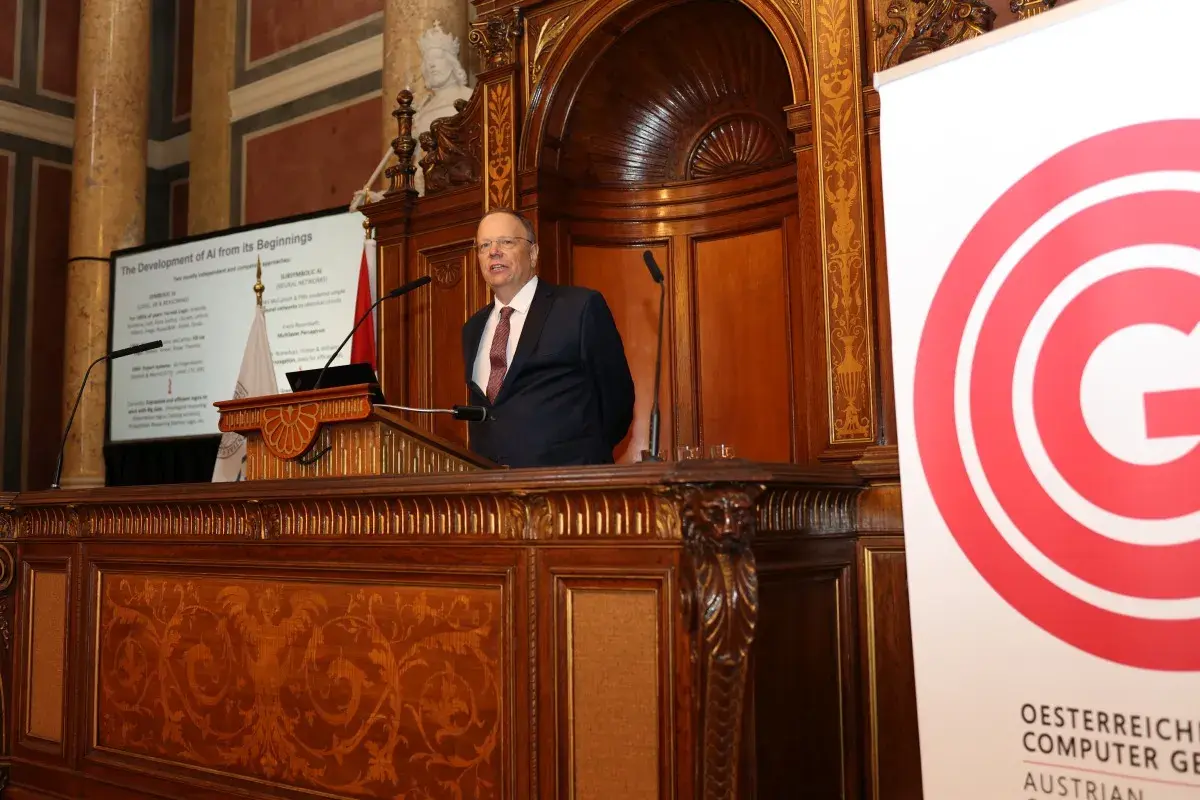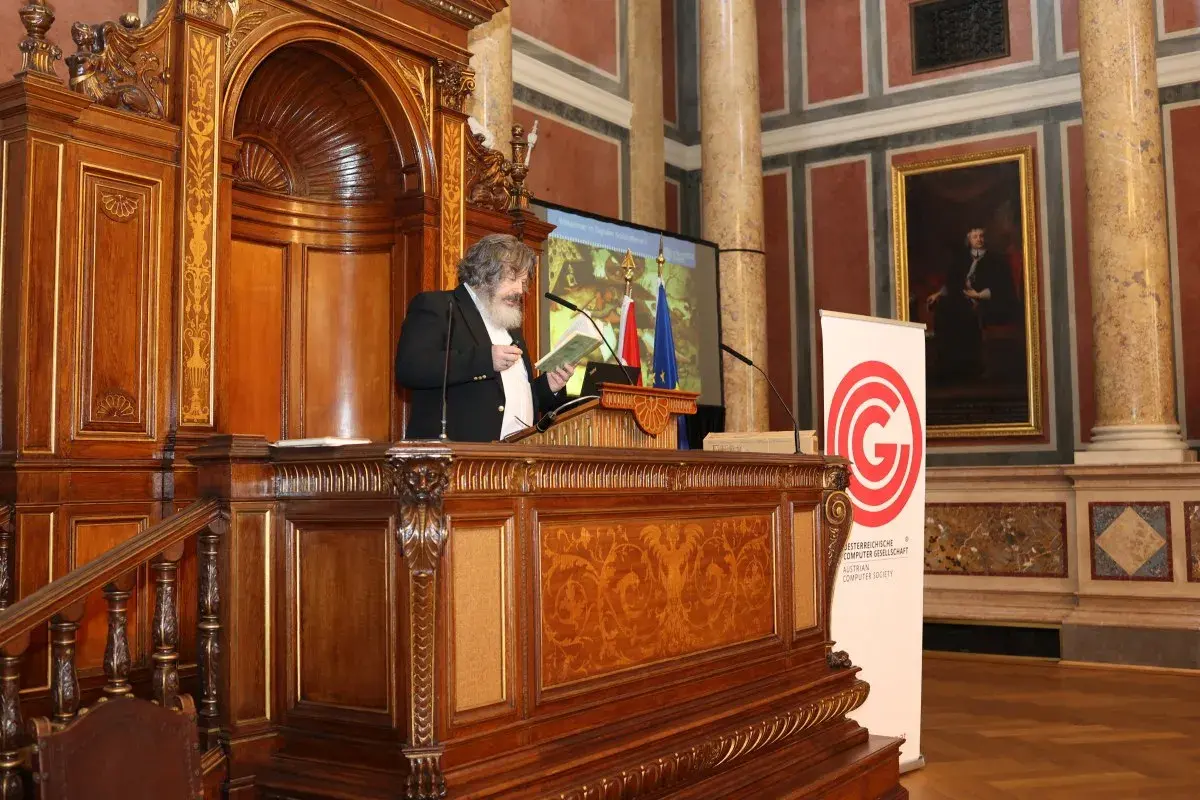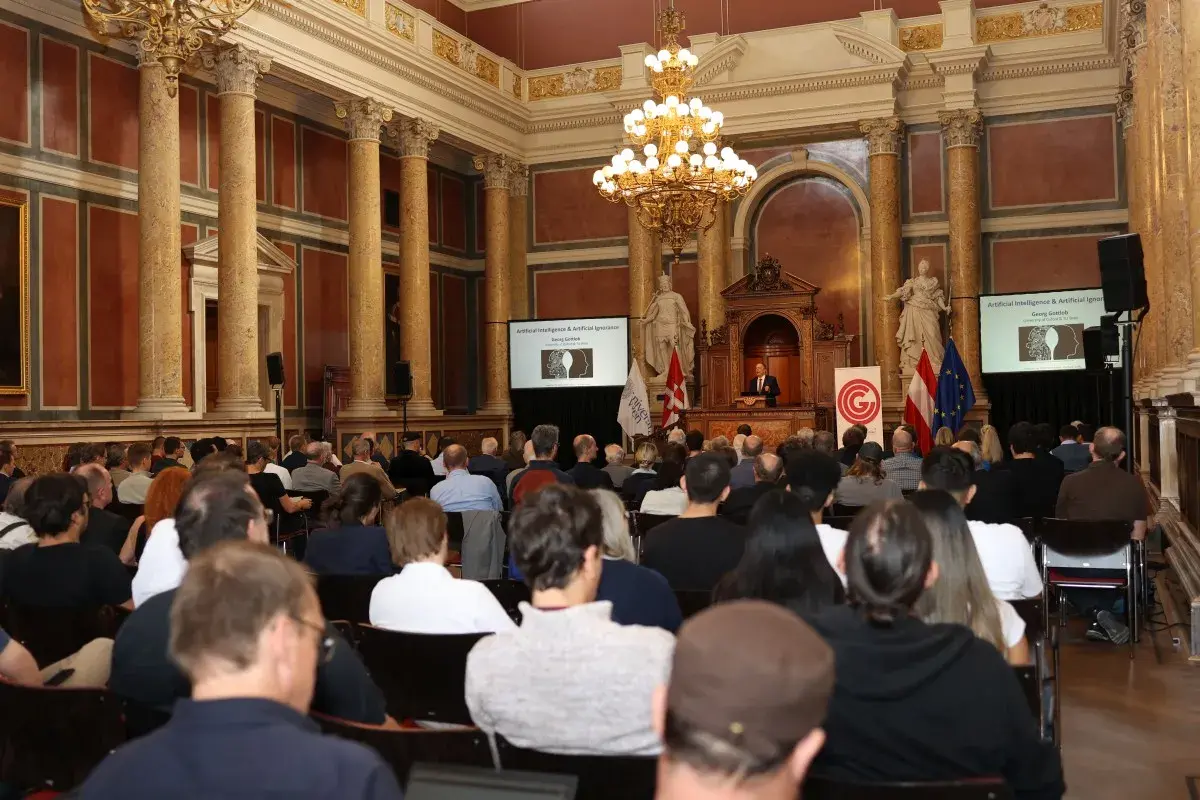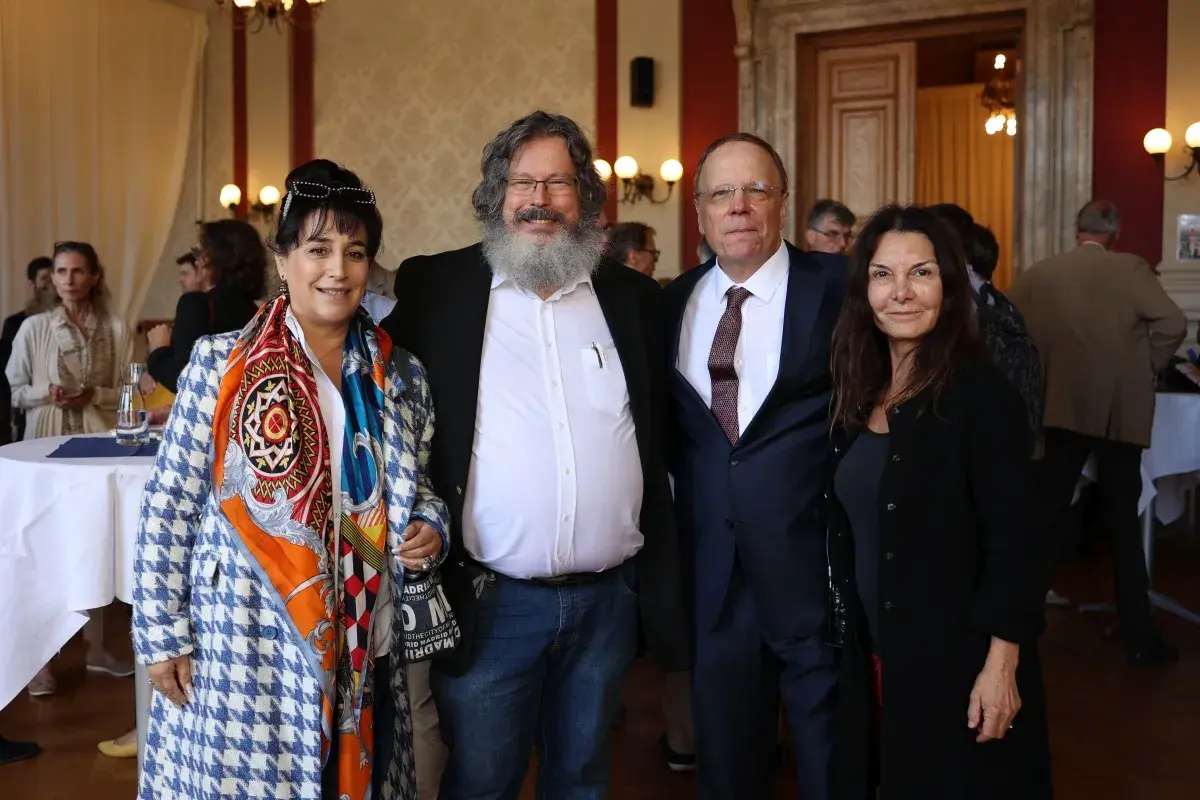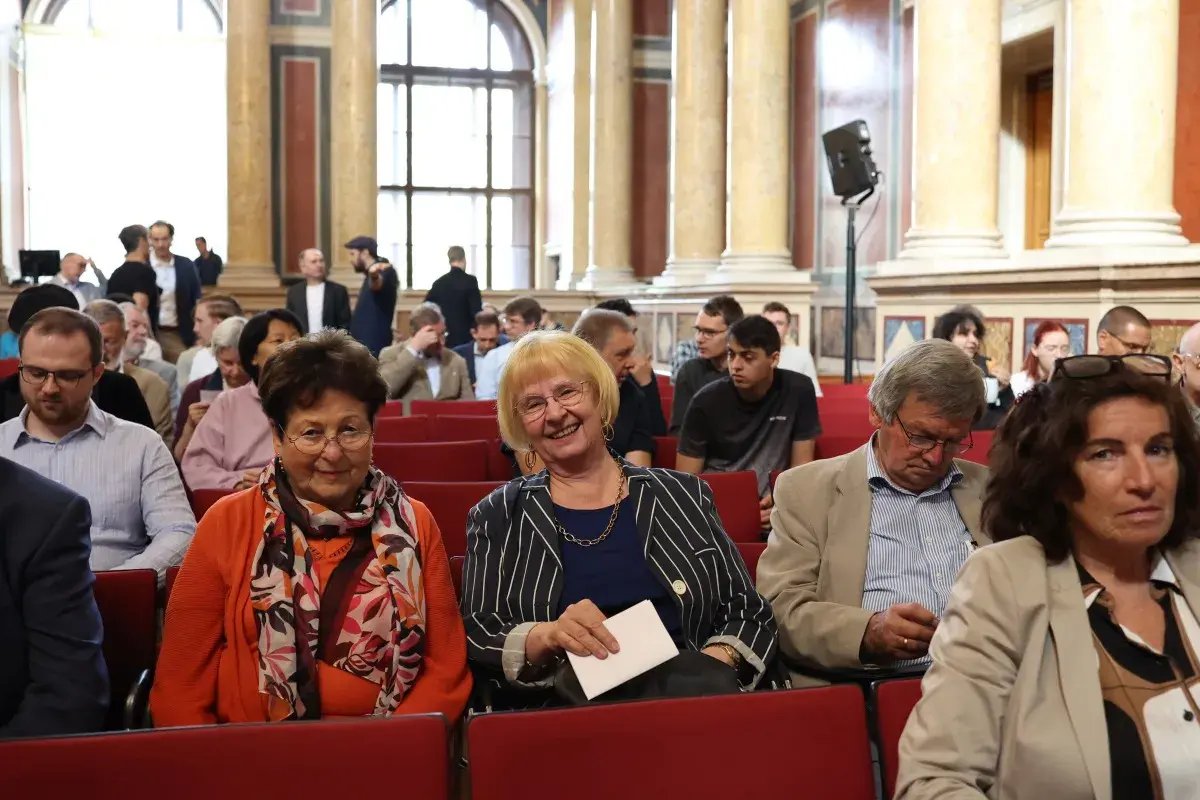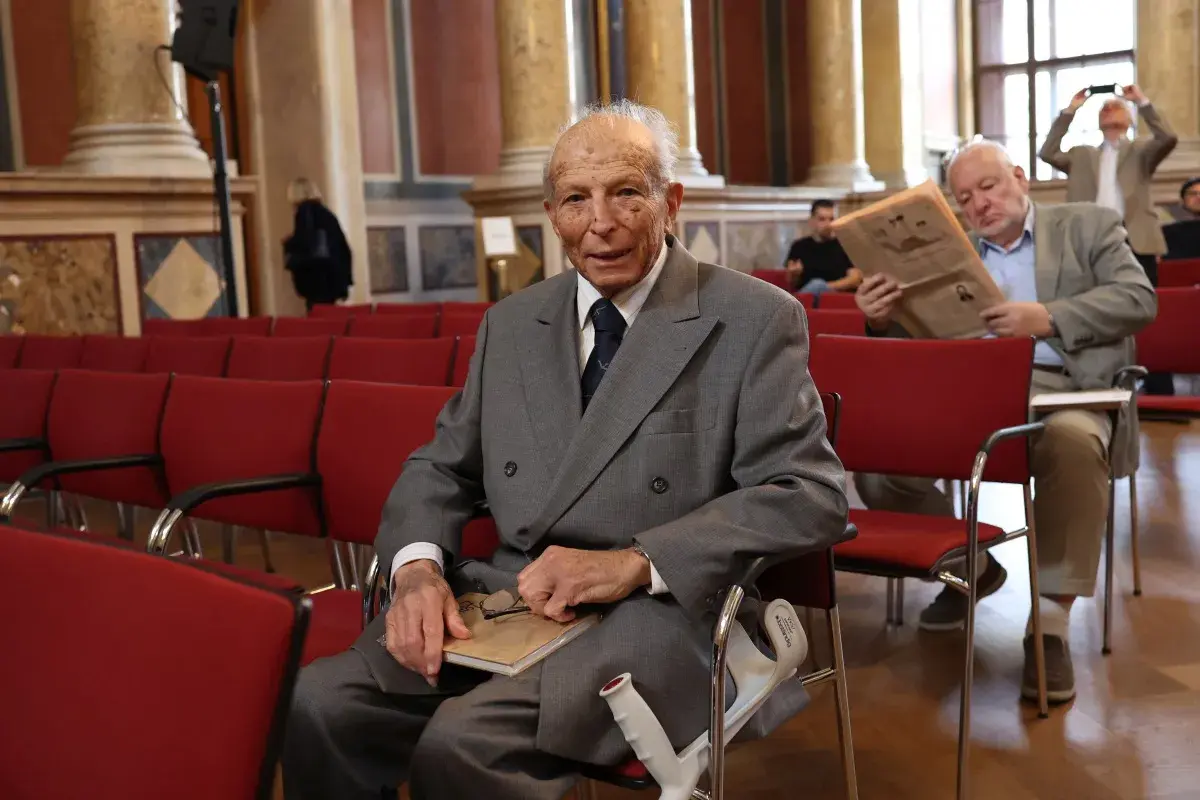Zemanek Lecture: Künstliche Intelligenz muss noch viel Lernen
Artificial intelligence lacks human common sense and it is rather complicated to transfer the subtleties of human intelligence. This was the conclusion of the audience after the second Zemanek Lecture by computer scientist Georg Gottlob, a luminary in the field of complexity theory.
Computer scientist Georg Gottlob gave the Zemanek Lecture in Vienna on Artificial Ignorance
In the festive ambience of the Festival Hall of the University of Vienna, the 200 or so attendees were transported into the fascinating world of machine learning on Thursday, 5 October 2023. In his Zemanek Lecture, which the Austrian Computer Society (OCG) organises once a year in honour of computer pioneer Heinz Zemanek, Gottlob spoke about Artificial Intelligence and Artificial Ignorance. The Austrian does research at Oxford University on algorithms and complexity problems related to graphs and hypergraphs, database query languages and problem decomposition methods.
400 years of calculating machines
Gottlieb's previous speaker, Prof. Peter Reichl from the University of Vienna, spoke in advance on the 400th anniversary of the computer. As early as 1623, the theologian Wilhelm Schickard designed a calculating machine for Johannes Kepler to facilitate his complicated astronomical calculations: the first computer was born (and unfortunately burned shortly afterwards - only sketches bear witness to the invention today). In his entertaining lecture, in which Reichl presented, among other things, an updated version of the fairy tale of the land of milk and honey, where numerous digital services and programmes (from Alexa to delivery service and various social media platforms to Tinder, ebay and many more) fulfil all of man's supposed desires, the professor awakened the desire to learn more about the history of computers. Reichl's book "Homo cyber" has just been published by Müry Salzmann Verlag.
With the Heinz Zemanek quote "The lasting thing is man", Reichl handed over to the keynote speaker of the day. A comment that fitted in well with Gottlieb's lecture, which impressively explained what humans (still) have ahead of machines.
AI ignores essentials when making decisions - unfortunately!
Right from the start, AI was split into a symbolic and a sub-symbolic branch. Enormous progress has come from the subsymbolic AI in recent times. Subsymbolic AI is particularly strong in pattern recognition and classification, but subsymbolic AI has weaknesses in incorporating transferable knowledge and drawing conclusions, Gottlob explained with impressive examples. For example, he had experienced first-hand the effects of AI making decisions in important areas of people's lives on the basis of incorrect conclusions. After he bought a house, the AI system of a bank assessed his creditworthiness as low because the defaulting previous tenant of the house was wrongly associated with Gottlob. The system knew that Gottlob had the same address as the debtor, but could not conclude that Gottlob and the previous tenant never lived at the same address at the same time (there is no civil register in England). Human common sense would have no trouble drawing the right conclusion here.
LLM is great, but lacks logic
Although Large Language Models (LLMs) are revolutionary due to three innovations (Word Embeddings, Transformer Architecture and specifically in the context of the Attention Mechanism) and function similarly to the human brain, the development is far from complete, says Gottlob. LLMs hallucinate by inventing facts or misrepresenting them. Some results contradict common norms; in this context, one speaks of bias.
"It would be desirable to have a system that can combine machine learning with classical rules, expert knowledge, ethical and legal guidelines, physical laws and logical models," says Gottlob. However, this is very challenging because the integration of these rules is complicated and even classical logic alone is not free of fundamental challenges.
Gottlob is currently working on a project (Chat2Data), a tool for interacting with databases. There is probably still a lot of work ahead before we have systems that combine the advantages from both worlds and Artificial Intelligence overcomes Artificial Ignorance in this way.
In honour of Heinz Zemanek
Prof. Gabriele Kotsis, Johannes Kepler University, moderated the event and called for listening to science to overcome crises. Vice Rector of the University of Vienna, Ronald Maier, responsible for digitalisation and knowledge transfer, was pleased to honour the legacy of Heinz Zemanek in his house. In his welcoming speech, OCG President Thomas Mück asked why Heinz Zemanek built a transistor computer in Austria at that time, even though it was clear that it would not be the most powerful (perhaps hence the name "Mailüfterl"). "My theory is: out of curiosity," says Mück. "He wanted to know how it worked and just did it. Curiosity is the key, the driver to create something great." Another thing that humans have ahead of AI.
All photos from the event can be found in the Flickr photo album.
